Overview | Readings | Participants | Schedule
 |
Diane Davis is Professor and Chair of Rhetoric and Writing at the University of Texas at Austin, and she holds the Kenneth Burke Chair of Rhetoric & Critical Media Philosophy at the European Graduate School in Saas-Fee, Switzerland. Her work is situated at the intersection of rhetorical theory and continental philosophy. She’s the author of Breaking Up [at] Totality: A Rhetoric of Laughter and Inessential Solidarity: Rhetoric and Foreigner Relations (University of Pittsburgh, 2010), co-author of Women’s Ways of Making It in Rhetoric and Composition (with Ballif and Mountford), and editor of The ÜberReader: Selected Works of Avital Ronell and Reading Ronell. She co-edited, with Michelle Ballif, a special issue of Philosophy and Rhetoric (2014), entitled “Extrahuman Rhetorical Relations: Addressing the Animal, the Object, the Dead, and the Divine.” |
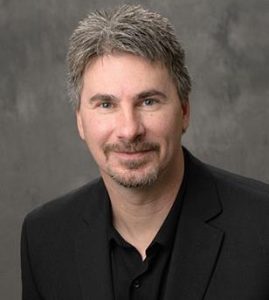 |
Thomas Rickert is Professor of English at Purdue University. His areas of interest include histories and theories of rhetoric, critical theory, composition, cultural studies, and network culture. He is the author of Acts of Enjoyment: Rhetoric, Zizek, and the Return of the Subject and Ambient Rhetoric: The Attunements of Rhetorical Being. His recent publications include “Parmenides, Ontological Enaction, and the Prehistory of Rhetoric” in Philosophy and Rhetoric 47.4 (2014) and “Rhetorical Prehistory and the Paleolithic” in The Review of Communication 16.4 (2016). His current book project investigates a prehistory of rhetoric. |
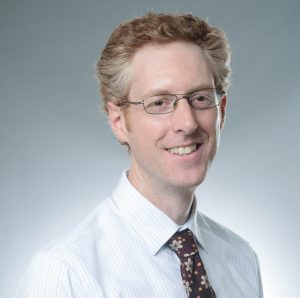 |
Dan Cryer is Assistant Professor of English and Director of Undergraduate Writing at Roosevelt University in Chicago. His work explores the construction of ethos in environmental rhetorics. His current project follows the ethos of early-20th-century naturalist Aldo Leopold to the modern Wisconsin-based Aldo Leopold foundation, which uses land, green technology, and a traditional paper archive to create a 21st century ethos for itself and its namesake. His articles and reviews have appeared in the New Mexico Historical Review, American Literary Realism, and Rhetorica: A Journal of the History of Rhetoric. |
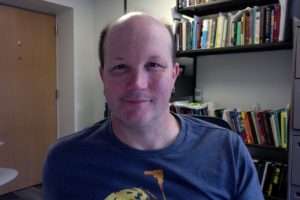 |
David M. Grant is Associate Professor of English at the University of Northern Iowa where he teaches courses in professional writing and composition theory. His research centers on the dynamic ecologies of rhetorical activity. He has published in PRE/TEXT, Kairos, and JAC, with an article on indigenous rhetorical objects forthcoming in College Composition and Communication this fall. He has chapters in Florida, edited by Jeff Rice, and in Rhetorics, Literacies, and Narratives of Sustainability, edited by Peter Goggin and is currently at work on a book project centered on rhetorical availability that looks to understand Aristotle’s endekhomenon from an entangled conception of rhetoric. |
 |
Charley Silvio is a doctoral candidate in the English PhD program at Louisiana State University, concentrating in Rhetoric, Writing, and Culture. His research interests include technical and professional communication, ethics, digital rhetoric, disability studies, and rhetorical theory, and he has presented on these topics at national and regional conferences. He is currently working on his dissertation which explores some implications of Levinasian ethics for technical communication in an increasingly technologized world. He has previously served as Assistant Director of LSU’s University Writing Program and currently works with LSU’s Communication Across the Curriculum to train communication mentors. |
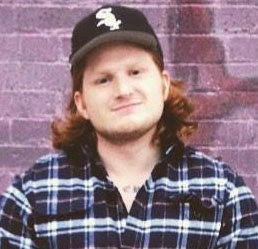 |
Adam Syvertsen is currently a graduate student at Northwestern University pursuing a PhD in English. His research focuses are interdisciplinary, located at the intersection of 19th century American culture, the History of Science, as well as contemporary theory and philosophy that seek to redress the delimiting anthropocentrism that has historically defined the scope and trajectory of the Humanities. He has previously presented research at Association for the Study of Literature and Environment conferences, and the Midwest Modern Language Association convention. |
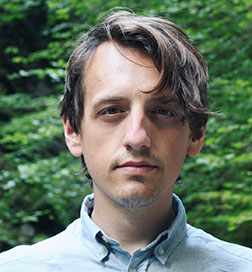 |
Tad Lemieux is a doctoral candidate in the Department of English Language & Literature at Carleton University in Ottawa, Canada. His dissertation research is situated in the Canadian Arctic, and investigates Inuit claims to sovereignty in the context of temporality and biopolitics. He is currently co-editing a special issue of MediaTropes that explores some of the ways Indigeneity is culturally mediated in the contemporary media landscape. |
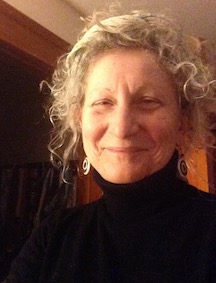 |
Jacqueline Preston is an Assoc. Professor at Utah Valley University. Her areas of interests include literacy studies, composition theory and pedagogy, project-based and design-thinking approaches to teaching entry-level composition, first year and basic writing. Her recent publications include an article in College, Composition, and Communication, “Project(ing) Literacy: Writing to Assemble in a Postcomposition FYW Classroom,” and chapters in Writing Program Architecture: Thirty Cases for Reference and Research, and Class in the Composition Classroom: Pedagogy and the Working Class.Her current project, a book-length text, explores composition as it turns and looks at the potential for a posthuman pedagogy, in lieu of theory, to further disrupt familiar assumptions about the first year composition classroom, its purpose and use, what it means to compose in and what it means to be a student in one of these courses. |
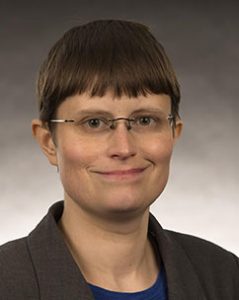 |
Lydia Wilkes is Assistant Professor of English and Director of Composition at Idaho State University. Her work on post-9/11 media ecologies of war, military experience, and veteran experience draws on theories of rhetoric, composition, digital rhetoric, and veterans studies. Her publications have appeared in Composition Forum and the Journal of Veterans Studies. Her book project investigates the entangled rhetorical relations of post-9/11 wars. |
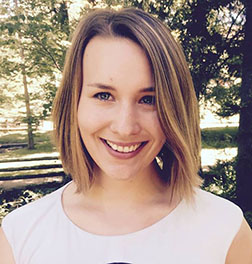 |
Caddie Alford is a PhD candidate at Indiana University, specializing in rhetoric/composition. Her dissertation is a rhetorical theory project that both recuperates and expands the scope of doxa, using social media as her research site. Caddie’s research interests include rhetorical theory, rhetorical invention, the non-human turn, innovative writing pedagogies, and disability. Her first publication, “Creating with “The Universe of the Undiscussed”: Hashtags, Doxa, and Choric Invention” (2016), can be found on Enculturation. |
 |
Kyle Allen has recently received his MA in English Literature from the University of Colorado at Denver and will be starting his work towards a PhD in English with an emphasis in Rhetoric and Composition at the University of South Carolina in the fall. His interests include rhetorical theory, the history of rhetoric, psychoanalysis, and continental philosophy. His current research project explores the rhetoric of witchcraft trials in 17th century Europe. |
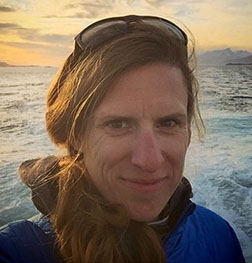 |
Caroline Gottschalk Druschke is an associate professor in the Departments of Writing & Rhetoric and Natural Resources Science at the University of Rhode Island, where she directs the Society, Ecology & Communication lab and collaborates with fish. She will join the faculty in the Department of English at the University of Wisconsin-Madison this fall. With Candice Rai, Druschke co-edited a forthcoming collection on rhetorical field methodologies, The Places of Persuasion: Studying Rhetoric in the Field, and is at work on a monograph that fuses ecological field methods, feminist science studies, and Amerindian perspectivism to explore rhetoric’s trophic dimensions. Funded by the National Science Foundation, National Park Service, and US Environmental Protection Agency, her peer reviewed research is published across disciplines in venues including POROI, Frontiers in Ecology and the Environment,Environmental Communication, and Biological Invasions. |
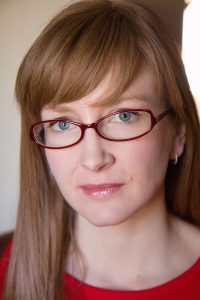 |
Nancy Reddy is Assistant Professor of Writing and First Year Studies at Stockton University in southern New Jersey. Her current project, an archival study of the Wisconsin Rural Writers’ Association, considers how extracurricular literacies are sustained through the distributed work of a host of human and nonhuman agents, including materials and technologies of writing like typewriters, desks, paper, and books, as well as less obvious forces like blizzards, the postal service, and rural places themselves. An article co-authored with Christa Olson was published inLiteracy in Composition Studies. She is also a poet, and her first book, Double Jinx (Milkweed Editions, 2015), won the National Poetry Series. |
 |
Jeremy Cushman is an associate professor of English and the Director of Composition at Western Washington University. He does his best to better understand (i.e., research) questions that are entangled with the kind of writing that surfaces and shifts inside workplaces as varied as auto repair shops, digital design firms, and hiking trail organizations. Most of Jeremy’s teaching gets after the relationships among Continual Philosophy, New Media, Storytelling Practices, and Pedagogical Theory. His recent publications include articles in the Journal of Business & Technical Communication, the Journal of Technical Writing & Communication and chapters in Literacies in Practice and Soundwriting Pedagogy (forthcoming from Utah State U’s Computers and Composition Digital Press). |
 |
Lisa Bailey is a PhD candidate at the University of South Carolina, Department of English, specializing in composition and rhetoric. Her dissertation, “Being Attuned to, and Collaborating with, Ambient, Nonhuman Agents in Rhetorical Pedagogy and Invention” explores ways that we could collaborate with ambient, nonhuman agents in our environment when inventing and teaching. Specifically, this dissertation focuses on how we might collaborate with the nonhuman agents of silence, space, and time when teaching and writing. Ms. Bailey also teaches Professional Communication courses as a full-time faculty member in USC’s Darla Moore School of Business. |
 |
Andrew Heermans is a MA/PhD Candidate in the Rhetoric & Writing Program at the University of Texas at Austin. His research interests include rhetorical theory, continental philosophy, sonic rhetorics, and rhetorics of science and technology. He is currently working on a project that connects various strains of anxiety surrounding the concept of automation, to the post-structuralist critique of Enlightenment subjectivity. This project historically traces the term, from the automata of 18th century France, through Fredric Myers and William James’ studies of “automatic writing”, to the automated musical performances of drum machines, and finally into the the emergence of automated journalism and grading softwares that employ contemporary computational mechanics. |
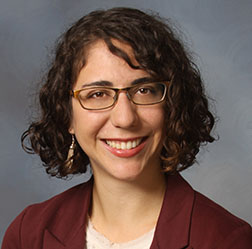 |
Lilly Campbell is an Assistant Professor of English at Marquette University where she teaches courses on academic and public writing, professional communication, and rhetorical theory. Her current project is based on a yearlong ethnographic study of clinical nursing simulations, where nursing students provide hands-on care and verbal communication to robotic patients in structured scenarios. She aims to theorize a materialist rhetoric of patient simulation, model a material rhetorical methodology for coding video data, and consider the implications of these findings for posthuman pedagogy in technical and professional writing classrooms. Her work is published or forthcoming in Women’s Studies in Communication, Composition Forum, and Written Communication. |
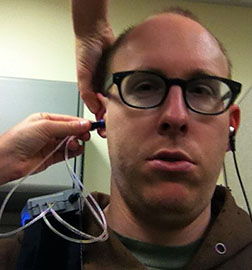 |
Matthew Overstreet is a PhD student in the English department at the University of Pittsburgh. He’s interested in the teaching of writing, pragmatist philosophy, and the nature of cognition in the digital age. His dissertation (in progress) uses William James’s metaphysical scheme to reconceive writing instruction as the restructuring of sense perception. In the fall, he will start a position as a writing fellow at the New Economic School in Moscow, Russia. |
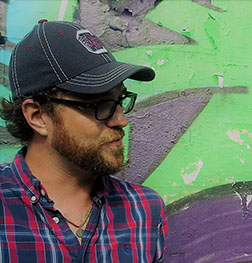 |
Ben Harley is a PhD candidate at the University of South Carolina. His dissertation, “Writing with Risk: Confronting the Dangers of Public Writing Pedagogy,” explores the dangers inherent in public communication so as to more fully consider the risks students face when they are asked to engage in public writing. Understanding the public as an enmeshed network of multiple actors, helps him to more fully understand these risks. |
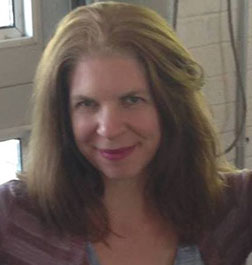 |
Kristin A. Swenson (Ph.D., University of Minnesota) is an Associate Professor in Critical Communication and Media Studies, as well as an affiliated faculty member in the Gender, Women, and Sexuality Studies at Butler University in Indianapolis, Indiana. Her work examines subjectivity, affect, agency, and gender in contemporary forms of labor. In her book, Lifestyle Drugs and the Neoliberal Family, she contends that direct-to-consumer advertising of drugs like antidepressants, Ritalin, and Viagra, function to align our affect with contemporary demands of work in neoliberal capitalism. Her work has appeared in a variety of journals including Communication, Culture and Critique and the Baltic Journal of Law and Politics. |
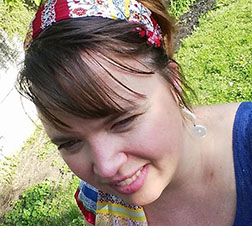 |
Michelle McMullin is a PhD Student at Purdue University where she focuses on professional and technical writing and public rhetorics. Her current interests include new materialist methods for doing research in PTC, and the infrastructure that emerges in communities as they address complicated problems like outbreak, or the breakdown of community infrastructure. Her work with the Crow project, an interdisciplinary, interinstitutional team of writing researchers developing a web-based corpus and repository of student work and pedagogical materials, centers on developing sustainable research practices for large, longitudinal projects.
|
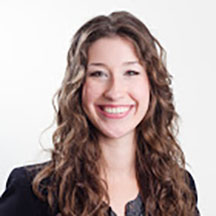 |
Megan Poole is a doctoral student in the Department of English at Pennsylvania State University. After working for many years as an ophthalmic technician, her research now centers on the intersections of rhetoric and optical science. Her M.A. thesis, titled “Burke and Optics: Re-Envisioning Rhetorical Theory through an Optical Lens”, traced Kenneth Burke’s engagement with Gestalt theory to evaluate the visual, optical, and neurobiological implications of his rhetorical theories. Her current research project examines how studies of the eye and theories of vision throughout the history of rhetoric and in contemporary neurobiological studies inherently involve practices of introspection |
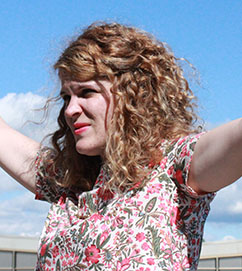 |
Kelin Loe is a PhD student in Rhetoric and Composition at the University of Massachusetts Amherst. When she returns from RSA, she will defend her two comprehensive rationales. The first argues: to better understand rhetorical circulation under late capitalism, we should combine a material-Marxist approach to circulation with contemporary affect theory. The second argues for a politically resistant theoretical foundation for rhetorics of sensation, drawing from theories on the contemporary valuation of life and death (necropolitics, disability studies, and animal studies). Her chapter on haptic rhetoricity is forthcoming in Rhetorical Animals (Lexington Books 2017). She is the Assistant Director for Writing Across the Curriculum at the UMass Writing Center. |
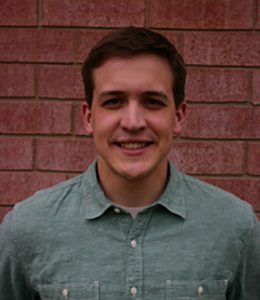 |
Devon Cook is a PhD student at Purdue University studying Rhetoric and Composition with an emphasis in professional and technical writing. His current research focuses on the study of print technology as a way of understanding the history and future of writing. Specifically, he has been using new materialist rhetorics to understand the manifestations of material agency in the historical and contemporary use of writing technologies. He will bring his interest in letterpress and offset printing into seminar discussions.
|
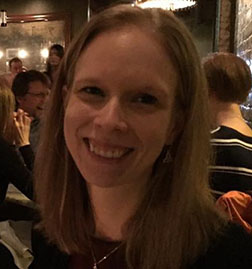 |
Maria Kingsbury is a PhD candidate in technical communication and rhetoric at Texas Tech University. Her dissertation describes how a voice studio instructor and her students engage sound, movement, visual images, and haptics together with or independently of words to shape musical voices. The broader intent of this study is to explore ways of re-embodying the metaphor of voice frequently invoked in writing and rhetorical studies, as well as to call attention to the rhetorical techniques leveraged in teaching and learning music. In the past, she has presented on the rhetoric of vocal dysfunction, as well as the rhetoric of anachronistic music in period television dramas. Maria is also an Associate Professor in the library at Southwest Minnesota State University, where she oversees the reference and interlibrary loan departments. |
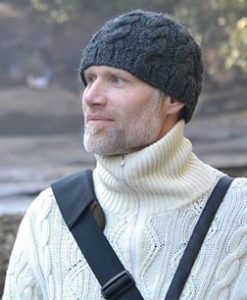 |
Jeremy Gordon begins this summer as an Instructor in the Honors College and the Department of Humanities & Cultural Studies at the University of South Florida, but will end it as an Assistant Professor of Communication Studies at Gonzaga University. He is grounded in Rhetoric and Public Culture and wanders between environmental rhetoric, histories/theories of rhetoric, new materialisms, and critical animal studies. Jeremy is a co-editor of the forthcoming special issue of Rhetoric Society Quarterly, “A Rhetorical Bestiary,” and has taught a range of courses in environmental ethics and bio-politics. He is currently attempting to trace (and animate) a latent extrahuman history of rhetoric, manifest in the material and mythic entanglements of pre-modern rhetoric, underworlds, magic, and monsters. |
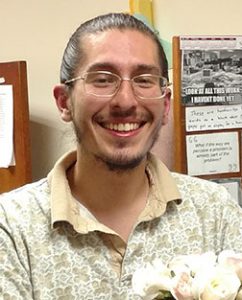 |
Josh Losoya is currently in his last semester of the M.A. program in English—Composition & Rhetoric at Salisbury University. His research interests include the intersections between Situationist theory (particularly Debord’s ideas on the Spectacle), contemporary rhetorical theory, and emerging ideas on “metamodernism.” As of August he will be an 8th grade English/Language Arts teacher at Chief Manuelito Middle School in Gallup, New Mexico. |
 |
Alina Haliliuc is Assistant Professor of Communication at Denison University. She teaches rhetorical criticism and theory and researches post-socialist national discourse in Romania. Her work may be found in such journals asThe Journal of Popular Culture (2015), Communication, Culture & Critique (2015), Aspasia (2013), Text and Performance Quarterly (2011), and in collections such as Text + Field: Innovations in Rhetorical Method (2016) andPimps, Wimps, Studs, Thugs and Gentlemen. Essays on Media Images of Masculinity (2009). |
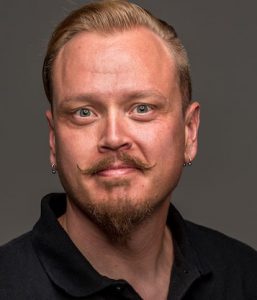 |
Joshua Hilst is associate professor in the department of literacies & composition at Utah Valley University. His research interests include composition and writing centers, as well as poststructuralism and rhetoric (with a special interest in the canon of memory). He has been published in JAC, Enculturation, and the Journal of Basic Writing. His current project focuses on Deleuze and memory, specifically looking to articulate memory as a differential, material force rather than a set of static symbols awaiting invention. |